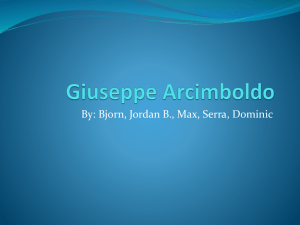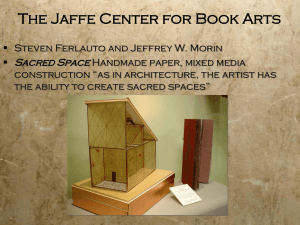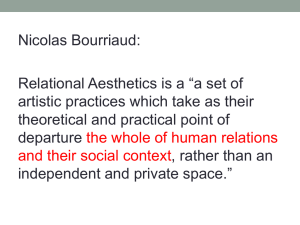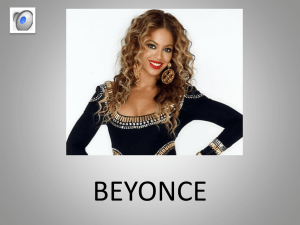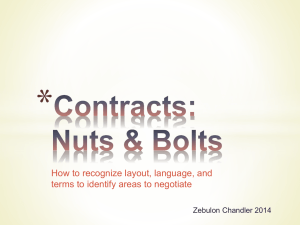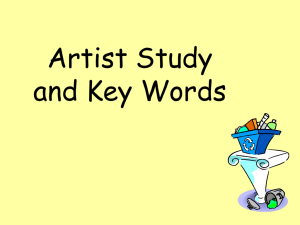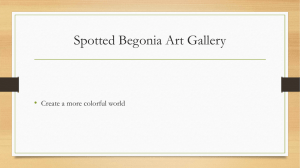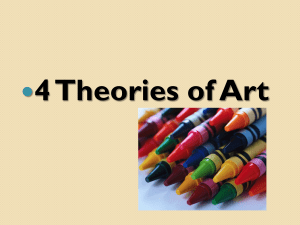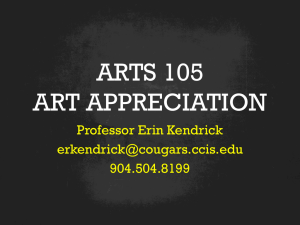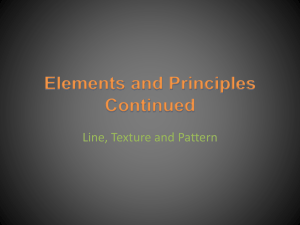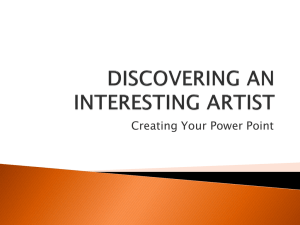Philosophy and the Arts Lecture 9:
advertisement
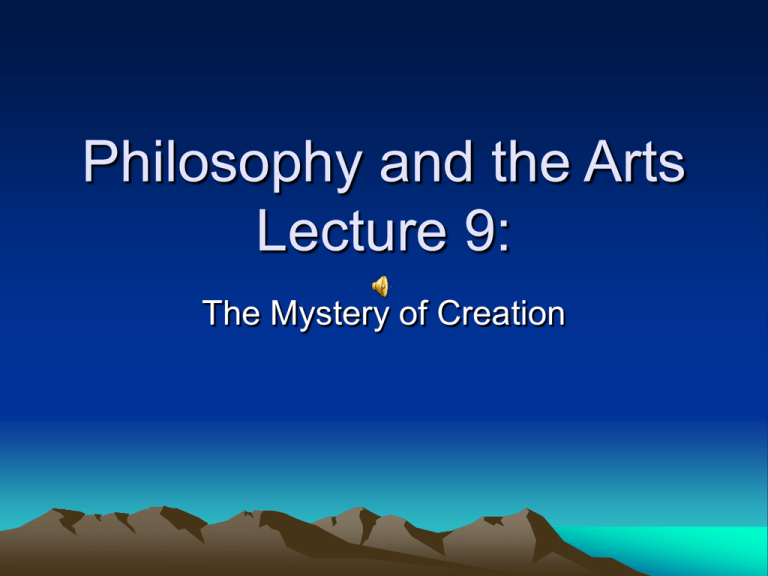
Philosophy and the Arts Lecture 9: The Mystery of Creation Creation?? • Why, and how, do artists do what they do? Do they have superior wisdom? Plato referred to an “ancient quarrel” between poets and philosophers, and decided that, when put to the test, artists were not wise: • “I took them some of the most elaborate passages in their own writings, and asked what was the meaning of them - thinking that they would teach me something. Will you believe me? I am almost ashamed to speak of this, but still I must say that there is hardly a person present who would not have talked better about their poetry than they did themselves. That showed me in an instant that not by wisdom do poets write poetry, but by a sort of genius and inspiration; they are like diviners or soothsayers who also say many fine things, but do not understand the meaning of them”. • That’s from the Apology, written more than 2000 years ago. • Vincent Tomas suggested we look at things a different way, but his results may not be so different. Hit the rifle range!! • Suppose you’re in the Army, and you are sent out to a rifle range for weapons training, with a sergeant in charge to teach you. It may be frivolous of me , but I’ll give you a choice of sergeants. Good Soldier, but… • The man on the previous slide was a good soldier, but I don’t think he ever became more than a corporal. • So consider this handsome chap. At least, he was a sergeant for a while. Maybe this is a better choice.. • The man on the previous slide has no weapon, and probably wouldn’t know how to use one. • Oh, the three soldiers have in common the fact that I love their wives—the first in a different way; she was my Mother. What’s the point of all this?? • Rifle-shooting is a paradigm case of a goaldirected purposive activity. • The shooter knows what he wants to do-hit the target- and he knows when he has done that, and when he has failed. • Finally, if he has failed, he can be told what to do to get back on target—hold the weapon more tightly, move the sights 4 clicks left, three clicks more elevation, and the like. What about the artist in his studio?? Is the artist so different?? • And the criticism gets worse: • It will be said the artist also has • “His subjects seem plain, and his brushstrokes do not convey a goal-to create a work of art, any intensity.” but do we know when he has done that? • Is this true? And how can we prove it? Or can we?? • Some people consider Thomas Kinkade a great artist, but a • Yet once more, many people critic recently wrote: love Kinkade’s work. Visit my favorite little town of Salado, • “Why is Mr. Kinkade Texas, and find whole galleries considered a great artist? I find devoted to his works—and his pieces to be flat and they sell!! without emotional impact” • Look at just one example… This is a Kinkade, his The Mountains Declare His Glory Mystery and solutions… • In the end, Tomas seems to leave us a mystery… • But Beardsley has an answer, even several. • One of the more interesting is what he calls the Incept theory. We could call it the Inoculation theory, being inspired is sort of like getting a shot… Henry James and The Spoils of Poynton • One of the best-known accounts of the Incept theory is the story told by Henry James, about how he came to write The Spoils of Poynton. He claimed he heard a few words at a cocktail party—and he had it!! The whole plot came to him in a flash!! But problems remain… • For one thing, a study of James’ notebooks reveal it didn’t happen that way. The manuscript underwent a number of changes; at one point the novel had the working title of The House Beautiful! • So look for other theories, various versions of the so-called Propulsion Theory. • I Propulsion?? • On this theory, the art work is either pushed, by a powerful emotion, perhaps, or pulled (Finalistic) to completion. But doesn’t that assume the work is somehow, there, before it’s created- and how creative is that?? • Finally, Beardsley settles for something like gestalt. That is, when we begin a canvas, say, what we do calls for, or requires, something else to complement it. It turns out to be a selfcorrective process, controlled by the art work itself. But how do we know when we’re finished?? Is it all a “Category Mistake??” • Jack Glickman has a novel suggestion, adapted from the British philosopher, Gilbert Ryle…maybe there is no “creative process.” • ‘Create’ may be a verb like ‘win.’ We don’t block, tackle, and win, in the same sense. Similarly, we could not paint from 12-2, sculpt from 2-4, and create from 4-6. Is this enough?? • Clearly, this will not satisfy everyone. It did not satisfy Nietzsche or Freud, for example. • In the end, Plato may have been right. What the artist, be he/she poet or painter or musician, does may be something divine, and beyond human knowing. • Who can really explain a Rembrandt, a Michelangelo, or even an Itzhak Perlman??
